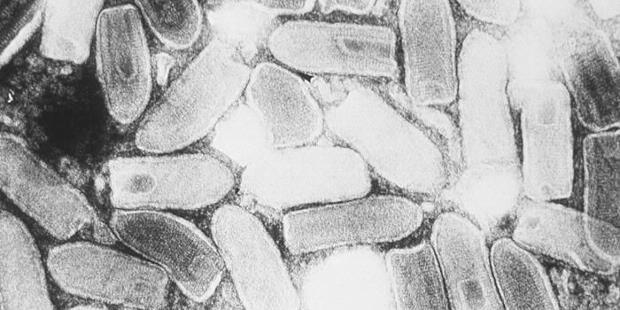Advertisement
ads

Research to find a cure for cancer continues to be done by experts from all over the world. Now present a speck of hope for cancer patients following the discovery of a unique kind of virus by scientists in Europe.
In the latest study, researchers from LIFE - Faculty of Life Sciences, the University of Copenhagen Denmark found that the vesicular stomatitis virus (VSV) has a great potential that was not previously known. The virus has two great abilities that is, kill the cancer cells as well as stop the expression of certain molecules of the type of hidden cancer cells in the immune system.
According to researchers, some types of cancer cells known to express immunostimulatory molecules are so much liquid, thereby blocking the ability of the immune system to recognize them, and allow these cells evolve toward cancer
Vesicular stomatitis virus (VSV) is a rhabdovirus. This virus originated from the same family with the rabies virus, and causes a disease similar to foot and mouth disease in cattle.
"Excessive expression seen in cancers such as melanoma, testicular cancer, ovarian cancer and certain types of leukemia that significantly damage the immune system, thus reducing the chance of recovery of patients," Soren Skov, associate professor of immunology of LIFE.
Skov was the leader of a research team that recently launched a major project in the European Union to study the potential to improve cancer treatment by strengthening the immune system. In one part of his research are also published in the Journal of Virology, the researchers infected human cancer cells with VSV.
"We were able to show that the virus (VSV) can kill cancer cells. The results also showed that the VSV is highly effective in inhibiting the production of immunostimulatory molecules - which act to destroy the immune system-and thus would allow someone to survive," says Skov.
Important breakthrough
Skov assess these findings as a breakthrough that is clear and a big leap towards better cancer treatment, where the immune system will be able to more effectively stop the progression of cancer. Skov hope in the future these findings can be an alternative to chemotherapy, and tailored to each patient's disease.
"The next step will be clinical trials in humans. The test has been conducted in the United States," said Helle Jensen, a researcher who has conducted research in the LIFE project in collaboration with the Faculty of Health Sciences at the University of Copenhagen and the National Veterinary Institute at the Technical University of Denmark ( DTU).


Tidak ada komentar:
Posting Komentar